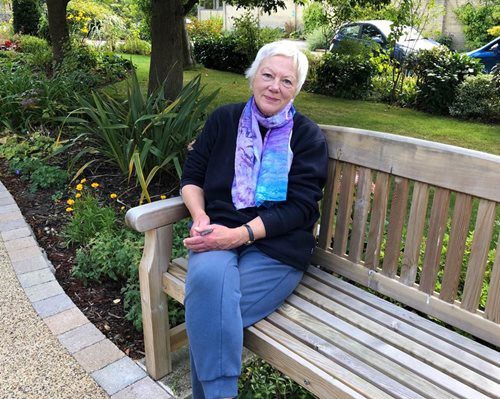Priscilla Schlicke's Story
My husband, Ray Prytherch, died in January 2017. He had been diagnosed with Primary Progressive Aphasia, a rare condition about which the medics know very little and for which there is no effective treatment and no cure. He lost all expressive communication, which in plain English meant that he could not speak, write or use a keyboard. He also developed apraxia or dyspraxia, I was never quite sure which it was, so his mobility deteriorated. Because the condition is rare, there are no support groups, such as those that exist for strokes, dementia, cancer, Parkinson’s and other more common diseases.
About a year before Ray died I went to a talk about the services that the Hospice could provide, not just to the ill but to their families. This was an eye-opener because I had always assumed that hospices were places for people in the last days or weeks of life. The Sunflower Centre had recently opened and I thought it would be useful for us to go along and see what sort of help and support the Centre could provide. That turned out to be one of the best decisions I made in the role of carer. Ruth, the OT, and Jenny, the senior social worker, helped with practical advice about various types of equipment available, how to navigate adult social services, preparing an Advance Decision and more. Carol had good ideas for craft projects, including this beautiful scarf I am wearing. Wendy made good coffee and was happy to chat with Ray even though he couldn’t chat back. Carol had a range of alternative therapies so we went home feeling relaxed. In the last months, Angie and Marsha gave him a bath, something that was increasingly difficult for me to do at home.
Looking back over that dreadful period, I honestly cannot imagine how I would have got through it without the help of the Hospice. I am now a volunteer gardener at the Hospice and, even now, if one of the Sunflower Centre staff spots me, they will come out, smile, ask me how I am and offer a hug.
